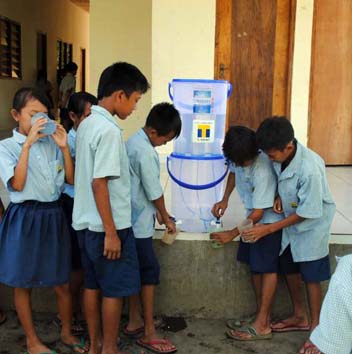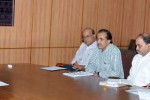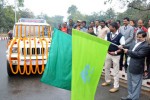Odisha Channel Bureau
Bhubaneswar: Speakers who joined a webinar on Tuesday unanimously proposed that WASH (Water, Sanitation & Hygiene) in schools is one of the core areas that need urgent attention and improvement in this sector can trigger improvement in all other sectors like health, nutrition and education.
The webinar on Water Sanitation and Hygiene in schools and preparedness in tribal schools and hostels was organised by Odisha government’s ST&SC Development, Minorities & Backward Classes Welfare Department. It was supported by UNICEF and Hindustan Unilever Limited.

Over 900 participants from districts including DWOs, PA ITDAs, Headmaster of SSD schools, NGO partners, SC & ST Development Department & UNICEF participated in the webinar.
Shipra Saxena, WASH specialist, UNICEF shared the objective of the webinar and highlighted the context of the pandemic and need to have improved WASH for infection prevention and control in current scenario.
In her keynote address, Guha Poonam Tapas Kumar, IAS, Director ST said that improvement of WASH is necessary in schools because it has a larger societal linkage due to its inter-connectedness with other issues like health and nutrition.
In the context of tribal schools and hostels in Odisha, Guha observed that WASH scenario in schools have changed in terms of infrastructure but in terms of practices still there is a long way to go. She mentioned on need of improved WASH and keeping SSD schools on higher level on WASH indicators.
Monika Neilson, Chief Field Office, UNICEF Odisha, mentioned that every child has the right to a quality education, which includes access to drinking water, sanitation and hygiene while at school. Children spend a significant portion of their life at school where WASH services can impact student learning, health, and dignity, particularly for girls, she said.
Since all meals, sleeping accommodation and washing facilities are provided within the tribal residential schools institution, it is therefore of critical importance that water, sanitation and hygiene enabling facilities are adequate, Neilson added.
In keynote address, Ranjana Chopra, Principal Secretary, ST & SC Development, Minorities & Backward Classes Welfare Department said that if WASH services in schools are not taken care of then the students in the school are assumed to be not taken care of. It is time to think beyond infrastructure, she said.
Chopra further said that mobilising the primary stakeholders i.e. students is not enough to address the issue. The secondary stakeholders like teachers, staffs, p Parents and above all community and civil society actors need to come forward else the good WASH practices learnt by students in schools will just be confined there and no scope for application of those learning outside the schools will be available for them.
Pratibha Singh, WASH Specialist, UNICEF India Country Office, shared key barriers for infection Prevention and control in schools and presented best practices from various states on safe school protocols and ensuring WASH measures.
Malini Reddy, Administrative Staff College of India, shared global examples on schools reopening measures taken in various countries before June. She enforced various preventive measures like temperature gun, mask and soap and other safe school protocols. She also spoke about challenges like confidence and comfort to get back to school and access to sanitation facility and physical distancing norms.
















